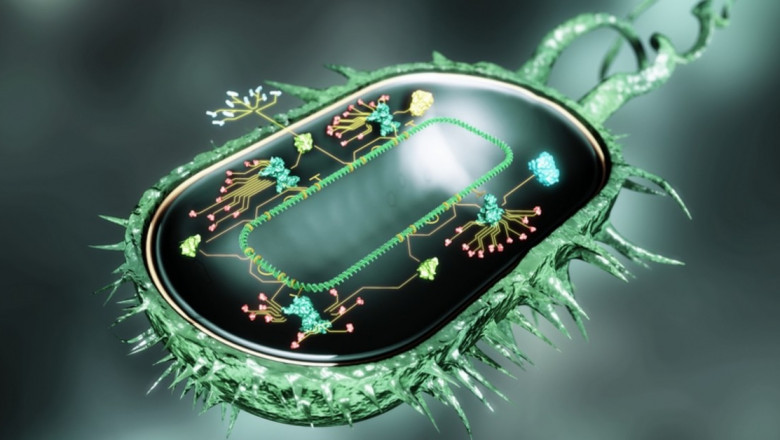views
Synthetic biology is an emerging multidisciplinary field that applies engineering principles to biology. It involves designing and constructing new biological components and systems, or re-designing existing natural biological systems for useful purposes. The central goal is the design and construction of new biological parts, devices, and systems as well as the re-design of existing natural biological systems for useful purposes.
Synthetic biologists seek to expand biology’s traditional toolkit in novel ways. Instead of focusing on evolution and adaptation, they hone in on rational, predictable, modular, and reusable engineering of well-defined biological components and systems. This enables the precisely controlled modification of living organisms for practical applications in medicine, industry, and agriculture.
Applications in Medicine
One promising application of Synthetic Biology is the development of new drugs and therapies. Researchers are designing genetically engineered bacteria to produce complex therapeutics like antibodies, vaccines and protein drugs in a faster, more efficient and cost-effective manner compared to traditional methods. This could help address the rising healthcare costs associated with treatments.
Synthetic biology is also being explored for personalized medicine. The ability to engineer living systems precisely at the genetic level offers possibilities for customized medical interventions tailored to an individual’s unique genetic profile, medical history and lifestyle factors. Examples include engineering probiotic bacteria to detect and treat gastrointestinal disorders or reprogramming cells to target and destroy cancer.
Advancing Sustainable manufacturing
The manufacturing industry is actively pursuing synthetic biology to develop sustainable and environmentally friendly processes. Engineered microbes are being designed to produce green chemicals, biofuels and biomaterials directly from renewable feedstocks like plant biomass instead of petroleum. This could help reduce dependence on fossil fuels and curb carbon emissions over time.
Scientists have created engineered yeast that can convert plant sugars into artemisinic acid, a precursor to the antimalarial drug artemisinin. Large-scale production of artemisinic acid using synthetic biology methods has made the lifesaving medication more affordable and accessible globally. Researchers are now engineering other microbes to produce a wide array of materials currently derived from petrochemicals like plastics, solvents and fibers.
Food and Agriculture
Advancing synthetic biology for sustainable and pesticide-free agriculture is another major area of research. Scientists are modifying crop plants like soybean, corn and rice through genome engineering to tolerate drought, salinity, flooding and infestations without comprising on yield. This could help secure global food supply in the face of climate change.
Research is also ongoing to bioengineer probiotic microbes and engineer beneficial plant-microbe interactions for boostingnutrient uptake, stimulating growth and protecting crops against pests and diseases. Livestock feed supplemented with synthetic microbial communities tailored to improve digestion and maximize nutrient utilization from fodder could help address the rising demand for meat and dairy.
Ethical and Regulatory Considerations
While synthetic biology promises revolutionary innovations, it also raises ethical, biosafety and security concerns that warrant prudent oversight and regulation. There are debates around the risks of creating novel lifeforms with unpredictable behaviors and the potential for misuse of this powerful technology. The release of synthetic organisms into open environments could disrupt ecosystems in unintended ways.
Issues regarding intellectual property rights, biosecurity, dual-use implications and equitable access also need to be thoroughly addressed. An international governance framework and guidelines are being developed to help synthetic biologists minimize potential dangers, ensure safety and responsibly advance this transformative field for the benefit of humanity. Public outreach and education efforts could help foster informed discussions on the technology and build awareness about both its promise and concerns.
Synthetic biology holds great potential to revolutionize medicine, manufacturing and agriculture through the rational engineering of biology. While the field is still in its early stages of development, the rapid progress and expanding applications foretell its growing influence across diverse industries in the decades to come. Responsible development guided by prudent oversight can help maximize its benefits while minimizing any associated risks to human and environmental well-being.
Get this Report in Japanese Language-合成生物学
Get this Report in Korean Language-합성 생물학
About Author-
Alice Mutum is a seasoned senior content editor at Coherent Market Insights, leveraging extensive expertise gained from her previous role as a content writer. With seven years in content development, Alice masterfully employs SEO best practices and cutting-edge digital marketing strategies to craft high-ranking, impactful content. As an editor, she meticulously ensures flawless grammar and punctuation, precise data accuracy, and perfect alignment with audience needs in every research report. Alice's dedication to excellence and her strategic approach to content make her an invaluable asset in the world of market insights.
(LinkedIn: www.linkedin.com/in/alice-mutum-3b247b137 )






















Comments
0 comment